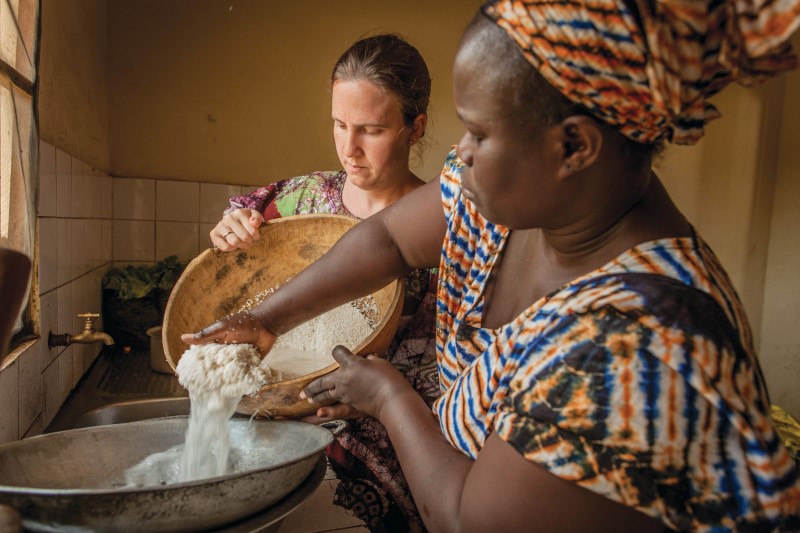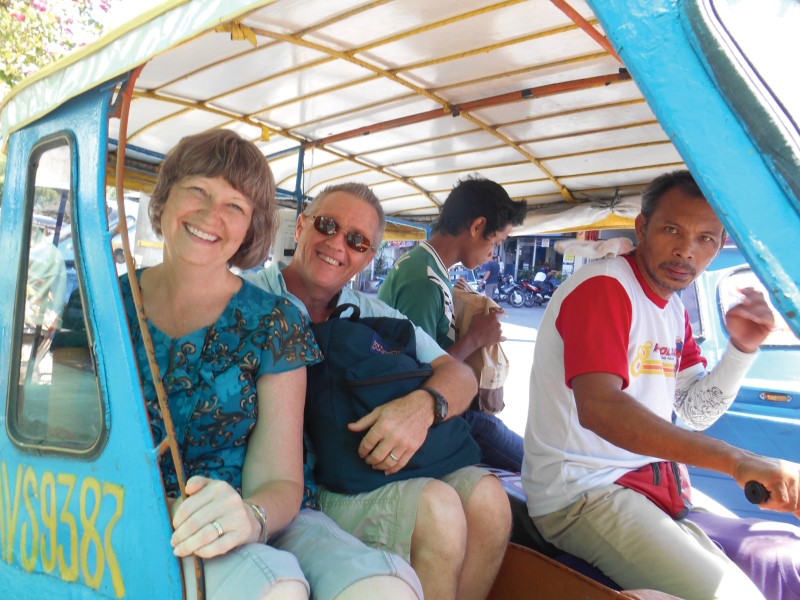Heart Language Ministries

If you're ready to back this project, you can give now or you may read the full story of why working in a person's heart language is the best way to help them understand life-giving truth.
“The weather app on my phone was showing a little sun icon with a 39°C beside it. Hmm. Even after living in Thailand over 20 years, I do not relate to Celsius the same as I do to Fahrenheit. I was reading the accurate scientific description of 39°C, but it was not really communicating to me. Even while feeling the heat of 39°C, I was still wanting to know, ‘How hot is it?’ Handy Google said, ‘39°C = 102.2°F.’ Suddenly, the heat became cruel; my dry throat craved water; I turned the fan up to wind tunnel mode.
What changed? I heard the description in my own ‘language’ of Fahrenheit and instinctively knew how to respond. 102.2°F is hot.”
Good friends wrote the above, comparing that with the need to have the Scriptures translated into the heart language of unreached or least reached people around the world. Those of us that speak two or more languages can understand words without capturing the meaning.
Ethnos360’s goal is to have a thriving church for every people — a good goal. But how can it be attained? What has to take place for those churches to become thriving and not just surviving? One way is to make sure that our ministries are indeed heart language ones — where we speak to the hearts of the hearers in a language that truly expresses their culture, their world view, their emotions, their uniqueness.
Culture and Language Acquisition
I have talked with some of our consultants who are helping missionaries come to the point where they can minister in the heart language — the mother tongue — of people groups. One that I talked with is Andi McMartin, a culture and language acquisition consultant in West Africa.
Ethnos360: Is heart-language ministry important? Why or why not?
Andi: Heart language ministry is important because ministry is about relationships. Ministry is about meeting people where they are and living life side by side [with them]. This is only possible if we are willing to learn how to live life with them in the way they would live it, which includes how we communicate. … It is not [only] about learning a language, but it is about loving people and learning a new way of living. It is about entering a world and letting the light of Christ shine in that world. If we don't do ministry in the heart language, then we are asking them to come and meet us in our world or in another world in order for ministry to happen.
Image: Cameron Pryor and Joel McMartin visiting with Baa, a neighbor
Heart language ministry is important because God is a communicator. God communicated to people in a language that they would understand. When a message is communicated to us in our heart language, then we know that the message is for us. We want the people we work with to know that as well: God's message is for them. He cares for them enough to bring His truth to them in a way that they can understand best.
Ethnos360: What does Culture and Language Acquisition (CLA) have to do with heart language ministries?
Andi: CLA is the way that heart language ministries are possible. CLA is about learning how to live life side by side with people. It is about learning how to build relationships and about learning how to love the people God called us to serve. When we first arrive [in a foreign country], we are walled off from life around us, and [our neighbors] are walled off from seeing and understanding our lives. CLA is about breaking down those walls so that Christ is meetable in our lives. It is about learning how to communicate, learning how to be part of life and learning how to have relationships. Only then will we be in a place to meet people where they are and to share clearly with them God's truth.
Ethnos360: How does your ministry help with that?
Andi: CLA is a time of being broken and becoming nothing. People enter into a new culture as a child and suffer the loss of their identity as a normal, functioning adult. The road of changing and adapting to a new way of living is long and has many challenges along the way. My ministry is to help people navigate that long process of learning and changing. … I want to help them avoid common mistakes that people make and hopefully to help them not get stuck in a position where they are just spinning their wheels and no longer progressing. We believe that heart language ministry is important, and so we believe it is worth the time and effort to learn how to communicate and relate to people well.

Literacy
Heart language ministries start with the very first step off the plane. It extends beyond CLA. Literacy is a “next-step” process of heart language ministry. It involves helping people learn to read and write in their heart language. Literacy classes take place since many people groups of the world do not have their language in written form — it is simply handed down to successive generations orally. In order to capture and maintain the integrity and purity of a language, it needs to be written down and preserved.
Jerry and Joyce McDaniels are Ethnos360’s international literacy coordinators. They said, “It’s impossible to have a deep, vibrant human relationship with someone with whom you cannot communicate nor hear their heart because they speak a different language. Since ‘ministry’ is opening the door for people to have a relationship with their Creator God, it must be done in the language of their heart. People need to know that God speaks their language and [that He] desires a close, personal relationship with them.”
Our goal again is to have a thriving church — and that means the church being able to feed themselves from the very Word of God. How can they feed from the Scriptures if they can’t even … read?
“Bible translators put God’s Word into the people’s heart language,” the McDaniels continued. “Bible lessons put the truths of God’s Word into a framework that they can apply in their culture. And literacy is what puts the Truth of the translated Word of God and Bible lessons into people’s hands to be used!
“We’ve been able to train a great team of people who will be able to lead others in literacy ministries. The training involved working together on real languages which needed literacy curriculum. So as we trained consultants for the fields, we’ve helped 28 languages write curriculum to teach people to read. … Literacy gives people full access to God’s Word.”

The final word on literacy and heart language ministry? The people need to be able to read and write in their own language in order to be able to read the Word of God being printed in their language. Obviously, they know their own language with all its twists, bends and figurative language. How better to read the Word of God than in their own tongue, in their own heart language, understanding the structure and sentence patterns perfectly?
Thank you for your part in seeing heart language ministries going ahead. It is because of your joining with us with finances and in prayer that we are able to continue with ministries to people groups around the world in their own languages.
We speak of heart language ministries, and we see churches being planted, being fed from the Word and going on to spread the Good News to others. We’ve seen what the consultants feel about the Word in the mother tongue of every people group. But what have we done about it? How do we stack up to what we purport as important and necessary?
Good news! A lot has and continues to happen in the area of translation. As of this writing, we have 124 New Testaments either already printed, needing the revisions reprinted or in the process of being printed. It all started in 1959 with the first translated New Testament rolling off the presses of what was then New Tribes Mission in Woodworth, Wisconsin. The two newest ones were finalized in the Ethnos360 offices in Sanford this past year before going to the printers.
And it’s not just the missionary translators that are involved but also the people groups themselves. During the process of helping the missionaries translate the New Testament, some of the Kalanguya people were trained as translators themselves. Now they have taken it upon themselves to see the entire Bible translated.
According to our translation report, we have almost 50 more to finish translating in the next five to 15 years. That’s a lot of work and a lot of opportunities for you to join in on. Ethnos360 estimates that it takes 15 years and $277,000 from the time a work starts until a Bible is printed. That works out to about $35 a verse, which includes the actual translation of the Scriptures and printing literacy materials and Bible lessons. Will you sponsor a verse or two or ten? Perhaps you could choose a chapter or even a book to sponsor. Find out more.
If you want to get behind a more specific translation project, check out the possibilities on our Translate page.
